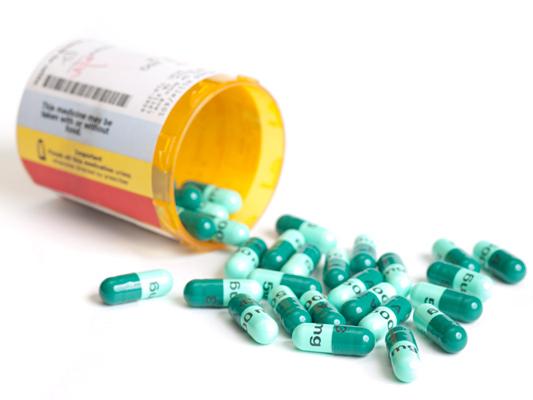You are here
Alarming global rise in use of antibiotics
Jul 16,2014 - Last updated at Jul 16,2014
Antibiotic use has surged by 36 per cent worldwide in a decade, much of it unwarranted, according to a new study.
The rise, particularly in countries with a burgeoning middle class, heightens concerns that overuse of antibiotics is leaving more of the world’s population vulnerable to drug-resistant bacteria, according to the authors of the analysis, resently published online in the journal Lancet Infectious Diseases.
The study provides the most comprehensive long-term view of antibiotic use in 71 countries from 2000 to 2010. It found that the rise in consumption could not be explained by population changes alone and appeared to parallel economic development. A few countries experiencing economic growth — Brazil, Russia, India, China and South Africa — accounted for more than three quarters of the rise in antibiotic use.
“People are getting richer and can afford antibiotics,” said Thomas Van Boeckel, a Princeton University epidemiologist and lead author of the study. “That is not necessarily all bad news. People need access to antibiotics. But there is appropriate use and misuse.”
Among the results researchers found most troubling was the sharp rise in consumption of broad-spectrum antibiotics that normally are considered a measure of last resort. Among them are carbapenems, such as ampicillin and amoxicillin; and polymyxins, both often used against enterobacteriaceae, such as salmonella and shigella.
Health care facilities worldwide have struggled with serious outbreaks of carbapenem-resistant enterobacteriaceae, or CRE, as well as methicillin-resistant Staphylococcus aureus, or MRSA.
“If we lose the effectiveness of these drugs, there really isn’t much left,” Van Boeckel said.
The study was not set up to distinguish inappropriate use of antibiotics, a phenomenon that has been well established by other studies. But some trends in the data suggest that antibiotics may be inappropriately prescribed.
For instance, the authors note, a rise in use of cephalosporins and fluoroquinolones in low- and middle-income countries probably comes in response to acute diarrhoeal illnesses and to such fever-producing maladies as dengue and chikungunya, even though most of these are caused by viruses, which do not respond to antibiotics.
Higher use of antibiotics also coincides with the influenza virus season, even though they are ineffective as a treatment against the flu, Van Boeckel said. “If you look at antibiotic use in the US, it’s correlated to influenza, and it’s not going to do anything for that,” he said.
Although overall consumption of antibiotics fell in Europe and the US over the decade studied, largely due to public awareness campaigns, the United States remains a very high consumer of antibiotics on a per-person basis. Per capita consumption also increased substantially in Australia and New Zealand, and all of the high-income Asian countries ranked among the top per capita consumers.
Within Europe, there were sharp differences between two nations of similar economic background. The French use three times the amount of antibiotics as do the Dutch, the study noted. Van Boeckel said authorities in the Netherlands had cut back on antibiotic use in response to a serious outbreak of drug-resistant Staphylococcus bacteria in its hospitals.
In less affluent countries, however, public health authorities appear to be using antibiotics instead of making long-term improvements to sanitation, the authors said. Such a strategy is short-sighted and counterproductive, leaving countries with the same exposure to much more resistant pathogens, they warned.
“It’s effective in the short term, but it’s going to be a big problem in coming years,” Van Boeckel said.
Data were hardest to obtain from countries where overuse of antibiotics appears to be prevalent, Van Boeckel noted. He and co-authors called for international guidelines governing prescription and sale of antibiotics and a uniform system for reporting antibiotic use.
“The more we wait, the more resistance builds up,” Van Boekel said.
Related Articles
WASHINGTON, United States — Global consumption of antibiotics has soared since the year 2000, stoking calls for new policies to rein in usag
Kids who get treated with broad-spectrum antibiotics before age two face a higher risk of childhood obesity, said a US study on Monday.
WASHINGTON — Newly vaccinated travellers enjoying a return to trips abroad may find a drug-resistant "superbug" hitching a ride in their gut


















